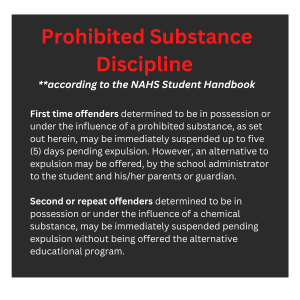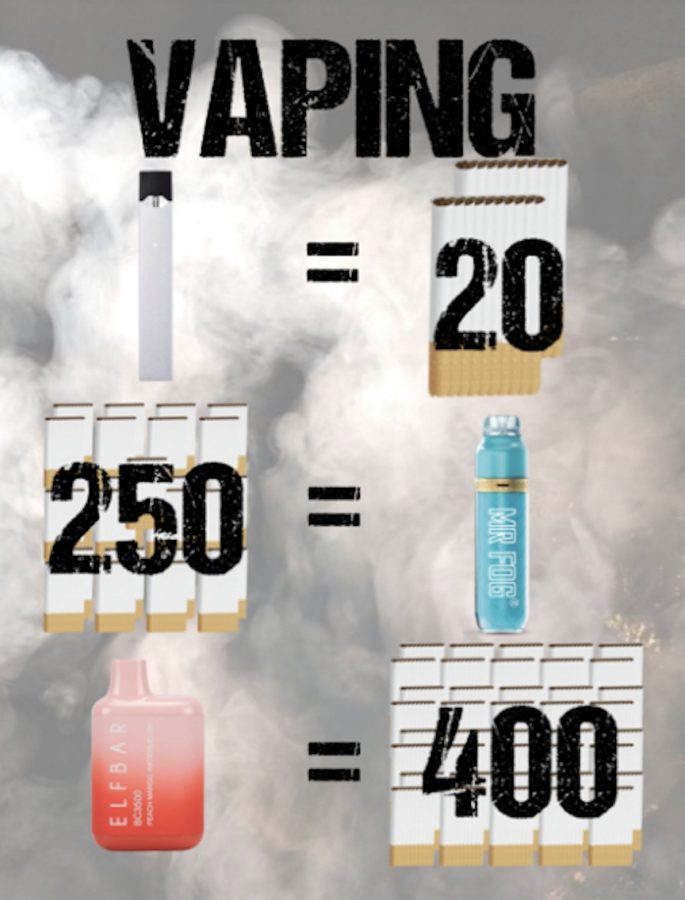Cracking down
Schools face heightened drug issues
February 7, 2023
Youth drug abuse is a high-profile public health concern, with at least 1-in-8 teenagers abusing an illicit substance in the last year, according to National Center for Drug Abuse Statistics.
Schools are trying to crack down, but products are becoming easier to hide.
For decades students have been disciplined for doing drugs or having drugs in the school setting. Some consequences have been referrals, detentions, in school and out of school suspensions.
“There have always been school policies in the handbook towards consequences about drugs; however, we sort of fell off due to Covid and other things taking our attention away,” Assistant Principal Adam Lord said.
Teens who abuse drugs have lower grades, a higher rate of absence from school and other activities, and an increased potential for dropping out of school, according to Get Smart About Drugs.
“We have these consequences to doing drugs because we want to help deter the amount of students who happen to do drugs,” Mr. Lord said.
Helping teen drug users isn’t always easy for adults who have to put their foot down in tough situations.
The human brain doesn’t fully develop until the age of 25. Anything one does to disrupt this process—including substance—will affect how your brain develops, according to Just Think Twice.
Studies show that marijuana, for example, affects attention spans, memory, and ability to learn. Its effects can last for days or weeks after the drug wears off. So, if you are smoking marijuana daily, you are not functioning at your best, according to Get Smart About Drugs.
 When it comes to knowing which students are doing drugs, Lord says it can be difficult.
When it comes to knowing which students are doing drugs, Lord says it can be difficult.
“It’s definitely hard for us administrators to tell academically if you are doing drugs because yes, we look at attendance and academics but doing poorly with either of those is not always due to drugs,” Lord said.
Some students claim that because of their reputation they are targeted by adults in the building.
Administrators step in when they have reason, according to Lord. He says administrators don’t pick specific students for no reason, there has to be probable cause.
“There are obvious reasons as to why we would search someone and those reasons would be like two people in the same stall, smelling something or having reports of drug usage,” Lord said.
School administrators are looking to help lower last year’s statistic of 1-in-8 teenagers abusing an illicit substance.


